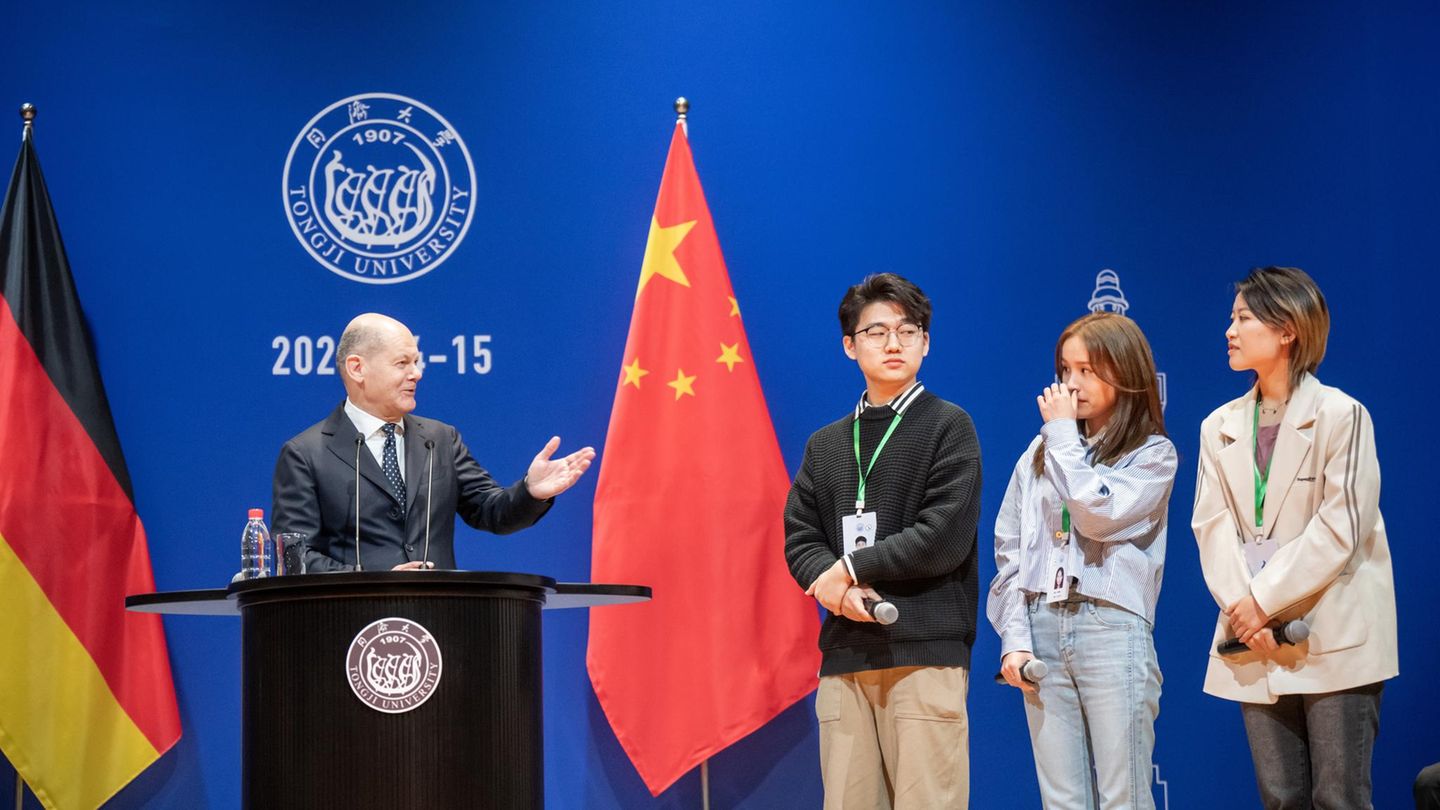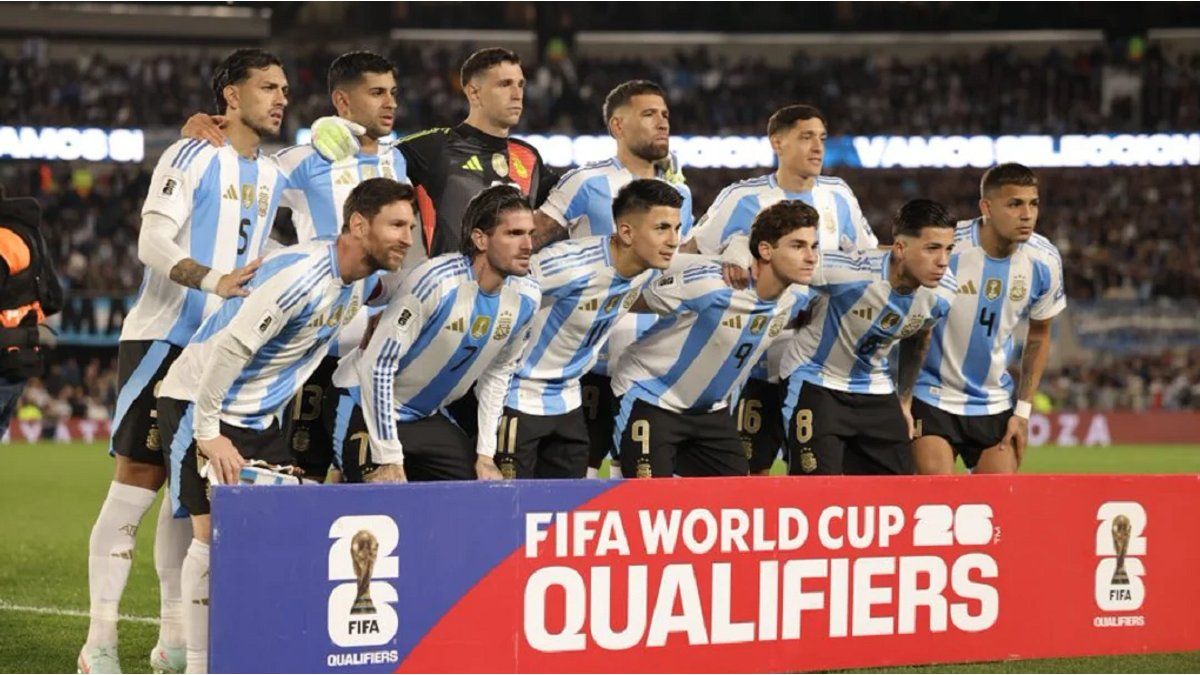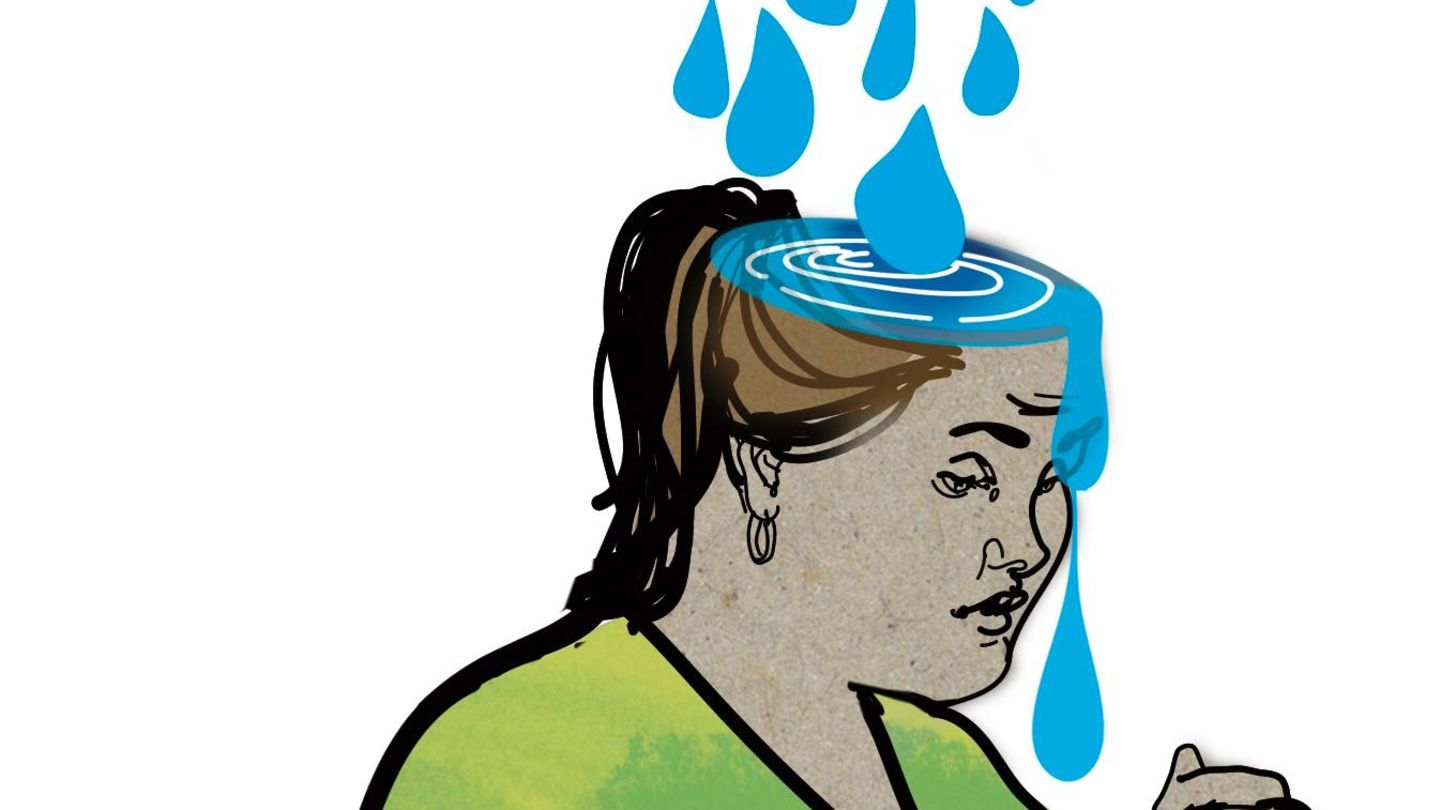While visiting a university in Shanghai, Olaf Scholz unexpectedly becomes a drug counselor. The Chancellor sends out a few uncomfortable messages – but also gets one himself.
Olaf Scholz is standing in an auditorium at Tongji University in Shanghai, having a question and answer session with around 150 Chinese students. “Who’s taking part here?” asks the Chancellor to the group. “I?” Laughter in the room. All right, then the Chancellor will be the moderator himself. Scholz points to the right, first question please, let’s go.
Day two of the Chancellor’s trip to China. Before Scholz’s delicate visit to Xi Jingping on Tuesday, he met for a relaxed discussion at the university. But she doesn’t get that relaxed at all. Scholz has come to post a few messages that are almost uncomfortable for him – and to catch one himself. But more on that later.
Example one: dumping, the cheap sale of products that China cannot get rid of. The Chancellor thinks it doesn’t work. He would like to make a “market economy argument,” he says. Dumping is certainly “not the most efficient form” of doing business; in fact, it is clear that “you are not doing the right thing.” Big applause.
Scholz in sheep’s clothing
Does everyone here understand what Scholz is referring to? The Chancellor does not specifically name China, but it is obvious who is meant. Chinese dumping is currently a big problem for Europe; the People’s Republic is flooding the market with subsidized goods. The criticism has to come out, very carefully, friendly in tone, and yet somewhat understandable. Scholz in sheep’s clothing, if you will.
Example two: International rules. It’s a thing with these rules since the world order has become more confusing. From Scholz’s point of view, there needs to be at least some kind of minimal consensus, a few very rough principles that all states can agree on, however they are written. Scholz’s credo: Everyone should act in such a way that “no one has to be afraid of their bigger neighbor.” “Borders must not be moved by force.” That is the most important thing to make the world safer.
A sentence that has it all
Big applause again. The sentence is quite something. It can be applied to Russia’s war, but of course also to China, which has been working for years to annex Taiwan. In front of a few students, the warning is worded lightly. The question is: Will Scholz also serve it up to the President?
Example three: cars. Also a difficult area in relation to China. The leadership in Beijing is massively pushing the expansion of its own car industry with state money, and more and more cheap electric cars from China are arriving in Europe. Distortion of competition par excellence. The major German car companies feel extremely disadvantaged and have been voicing their concerns for months. It’s very good that there is trade and not everyone just drives the cars they produce themselves, says Scholz. But dealings must be “fair,” warns the Chancellor. “Of course we want our companies to have no restrictions,” he says, as if the much-vaunted “de-risking” strategy never existed.
Applause, sure. Everyone smiles quite friendly. How real is all this? Sometimes in the auditorium it seems as if Scholz was guaranteed enthusiastic applause even when he said that he wasn’t actually interested in China at all.
And then suddenly the traffic lights come on
Yes, and then suddenly the traffic lights come on. A student speaks up. He was going to Berlin for an exchange semester, but he had heard that the federal government had legalized cannabis. This causes him “great concern”.
Does the Chancellor have any advice on what he needs to consider “if I don’t want to try cannabis at all and don’t want to endanger my own health”?
Cannabis legalization
The Bubatz Cabinet: These ministers have smoked weed before
It’s simple, says Scholz: “Don’t smoke.” He himself is almost 66 and has never smoked cannabis. Scholz countered the student’s concern that in the capital one would almost inevitably come into contact with joints with a daring thesis: “When you study in Berlin, you can run around all the time and not meet anyone who does something like that. ” He then defends the traffic light idea. The aim of legalization is to reduce cannabis consumption rather than increase it by taking it out of a gray area and putting it “in the spotlight”.
Applause, friendly smiles. Clear.
Source: Stern
I have been working in the news industry for over 6 years, first as a reporter and now as an editor. I have covered politics extensively, and my work has appeared in major newspapers and online news outlets around the world. In addition to my writing, I also contribute regularly to 24 Hours World.




